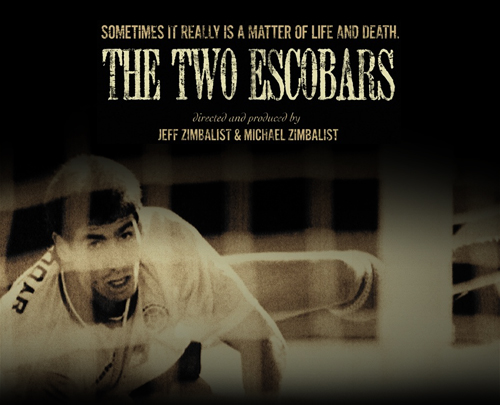By Nadine Moedt (The Cascade) – Email
Print Edition: June 18, 2014
Geoffrey Spurling’s course on Latin American history can’t help but address the cultural kingpin that is soccer. With the World Cup now underway in Brazil, it’s a timely subject.
As part of a new film series hosted by the history department, Spurling presented The Two Escobars, a documentary which examines the intersection between soccer, organized crime, and politics in Colombia during the 1980s and ‘90s.
The documentary was a part of the ESPN’s 30 for 30, a series of films celebrating the network’s 30th anniversary, and was directed by Jeff and Michael Zimbalist. It follows the lives of Pablo Escobar — brutal drug lord, soccer fan, and philanthropist beloved of the Colombian people—and the chiseled Andres Escobar, captain of the national soccer team and “gentleman of the field.”
The documentary detailed the two men’s similar beginnings. Both drug lord and soccer star grew up in abject poverty. Andres chose to pursue his love of soccer; Pablo eventually turned to crime.
Pablo Escobar’s rise to power brought him limitless riches, which he spent building soccer fields and channelling wealth back into the communities. His business was the export of cocaine, and this needed a laundering front. Owning a soccer team provided an ideal cover. The manager of the underworld now held control over the hugely popular and influential Colombian national team.
For the wild Colombian soccer fans, “soccer was a religion.” This allowed it to be part of the political process both nationally and internationally, as the American “war on drugs” found its front lines in Colombia. As Pablo struggled to maintain his power, soccer was used on both ends as a political tactic to gain support.
The film documents the rise of “narco soccer,” a term used to describe the dirty money that funded the rise of the Colombian national team. Pablo’s money was funnelled into keeping highly skilled players as well as the trading of foreign players. The film zeros in on Colombia’s devastating loss in the 1994 World Cup in which Colombia had been favoured to win as predicted by the “god of soccer,” Pele. The bloody political turmoil provides a fascinating study for a documentary to explore not only Colombian culture, but also the history of the cocaine industry.
The history film series will continue into the fall and winter, according to Spurling. Instructor Ian Rocksborough-Smith will host a documentary on slavery, race, and civil rights as part of his American history course. The films are open to UFV students, who can take part in a discussion of the film and history as it pertains to current conditions.


